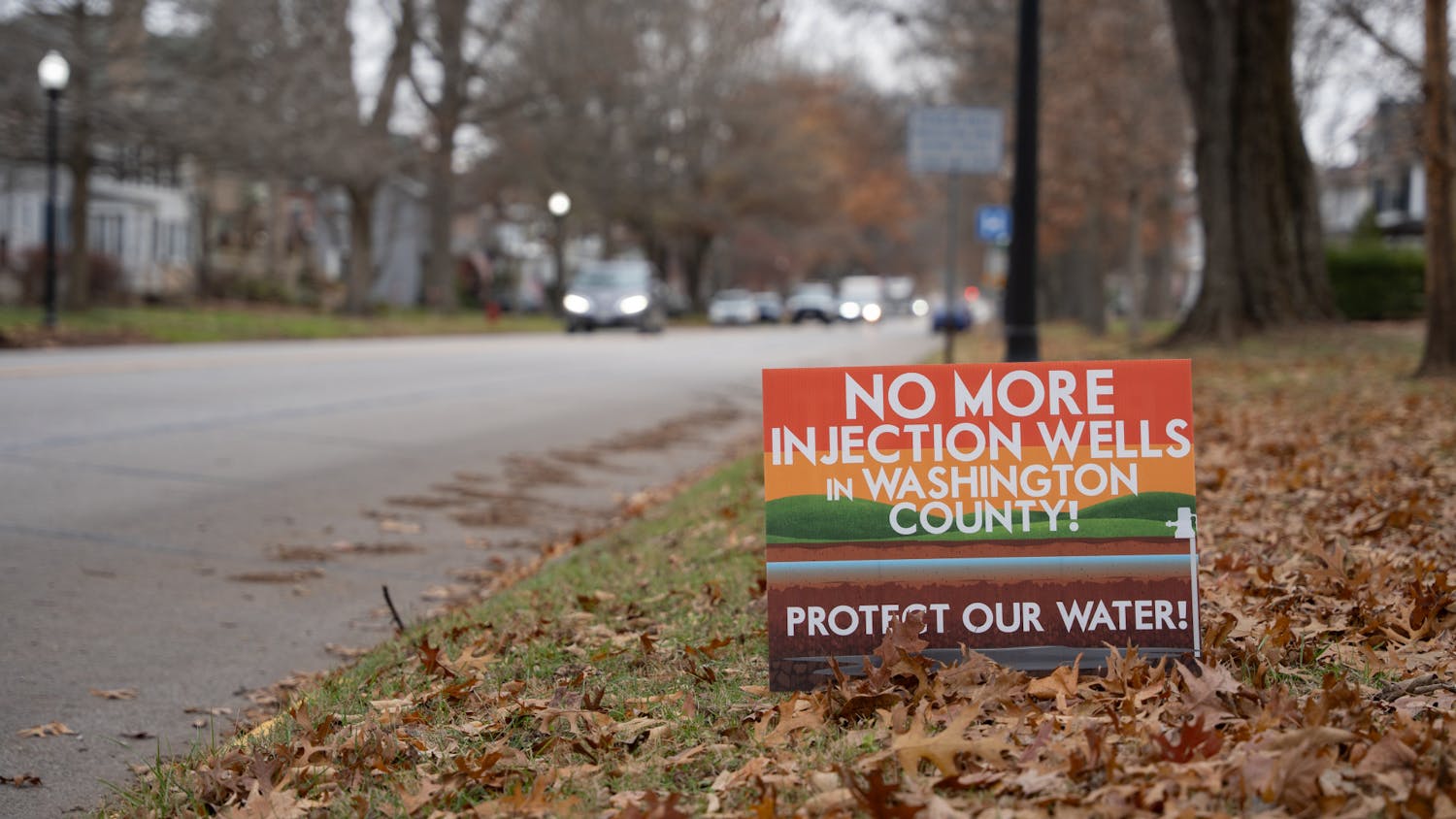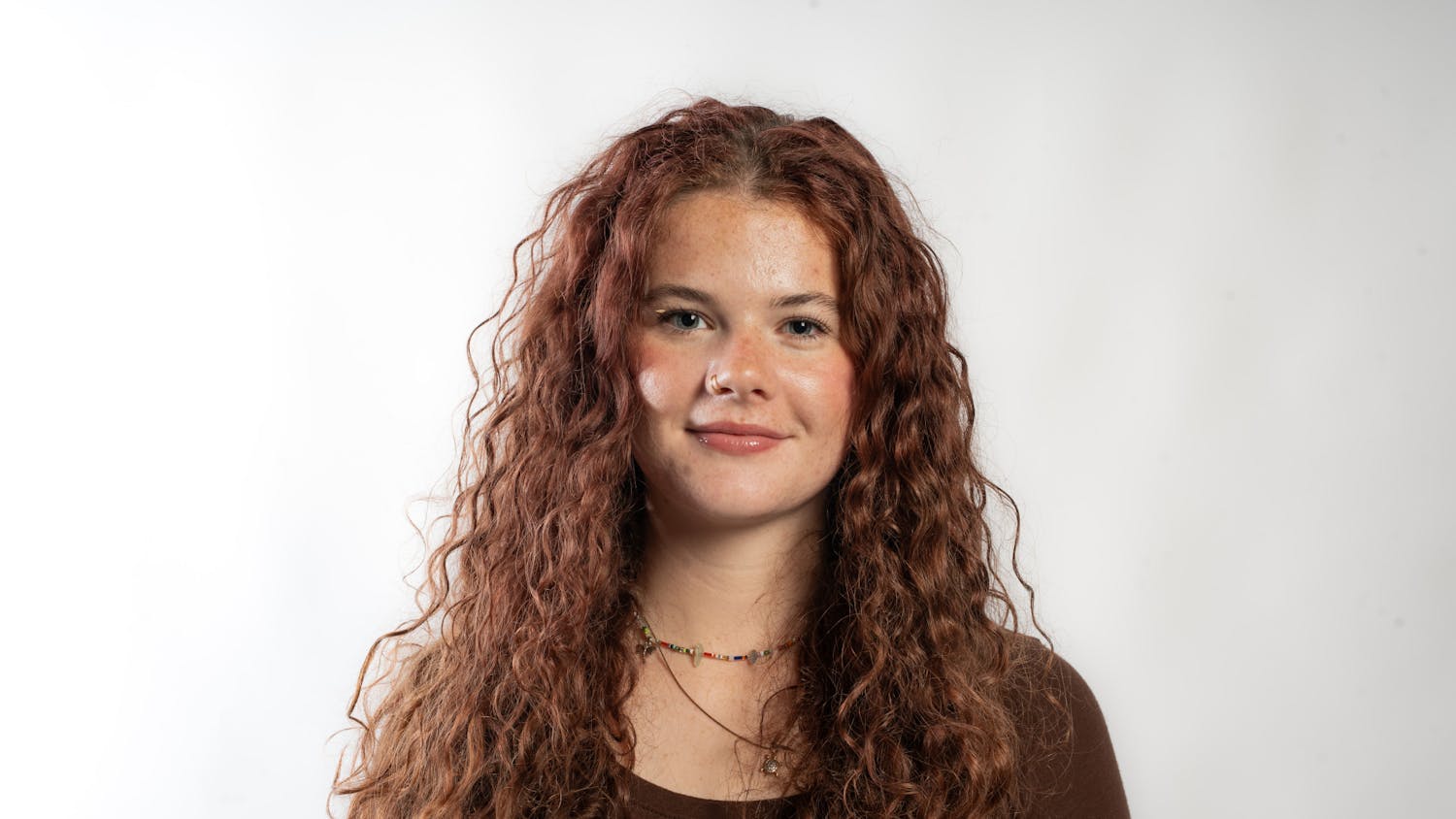Hajir Ali is one of the many Ohio University students who periodically drive to Columbus just to get halal-certified meat.
Some students must regularly purchase and slaughter animals themselves to have a diet containing meat. Muslim students can purchase halal chicken at Walmart, but there are no markets to get any other type of certified meat in or around Athens.
Halal is a term meaning religiously acceptable according to Islamic doctrine and is typically used to refer to food, according to the Islamic Food and Nutrition Council of America. Products can be certified halal by Islamic organizations for a price.
The specifications of a halal diet can make it difficult for Islamic people to find convenient places and things to eat, or to try new restaurants or recipes. In MY HALAL KITCHEN: Global Recipes, Cooking Tips, and Lifestyle Inspiration, OU alumna Yvonne Maffei presents more than 100 halal recipes for anyone to try.
Maffei graduated from OU with degrees in Spanish and global studies — Latin American in 1997, then with a master’s degree in development studies in 2000. She now runs a successful food blog by the name of My Halal Kitchen where she aims to make the lives of her readers easier by presenting healthy, halal recipes anyone can make.
Maffei converted to Islam in 2001, after being exposed to the culture on a study abroad trip while attending OU. She grew up in Ohio in a Puerto Rican-Italian family, and tries to incorporate her family’s culinary culture into her halal diet. In her blog, she mentions the difficulty of finding halal-certified options for some of her favorite dishes at restaurants, like beef tacos or veal stew, but she has now mastered recipes for them herself.
Halal-certified foods can still contain unhealthy and processed ingredients, and Maffei tries to incorporate healthy elements into her dishes, usually cooking from scratch.
The strictness of a halal diet can vary. Mohamed Amira, a graduate student and coordinator for the linguistics department’s Arabic program, said his religion does not affect his diet “very much,” citing that some Islamic scholars have determined it is acceptable to eat meat other than pork, and some students follow those looser guidelines.
All on-campus eateries offer vegetarian and vegan options for meals, which Amira said he is comfortable eating. Ali, a graduate student studying civil engineering, adheres to a stricter diet, eating only chicken, certified or not.
Ali said that the campus dining options offers “so many limited options,” and it had affected her overall diet.
Although some restaurants like KFC, Popeyes and Outback Steakhouse offer halal options in select areas with large Islamic populations, Athens does not have a large enough concentration of Muslims to receive these benefits.
Near campus, Salaam, 21 W. Washington St, offers halal options, but most restaurants aren’t so accommodating.
“We of course have lots of vegetarian and vegan dishes,” Hilarie Burhans, the co-owner and executive chef of Salaam, said. “We purchase halal lamb.”
Burhans explained that the restaurant purchases lamb from Australia and New Zealand, the largest exporters of lamb in the world because they’re “a little more ethically responsible.” A majority of lamb is halal because a majority of lamb consumption is by Muslim communities.
“There are a lot of good things about halal slaughter,” Burhans said.
On-campus dining halls offer some halal options, but not everything in them falls under the label. Many people are unaware that products like jello or breakfast cereals contain gelatin, which typically contains pork byproduct, rendering the item at hand haram, or forbidden in Islamic doctrine.
“Everything can contain these products,” Ali said.
The prevalence of gelatin and other byproducts can make it difficult to distinguish between food products unless they are specifically marked.
Maffei’s book will serve readers with inspiration for meals they may not have thought were possible in a halal diet, but it may soon be one of many cookbooks with halal recipes. It is likely that halal options will become more common in coming years, because the Muslim religion is the fastest growing in the world and is expected to comprise 26 percent of the global population by 2030, according to a report by Euromonitor International.
Right now though, halal options are not as plentiful or convenient as the options available to everyone else. Amira is one student who hopes for more halal options, and he said having various halal options “would attract a larger audience who are strict about their diets.”






